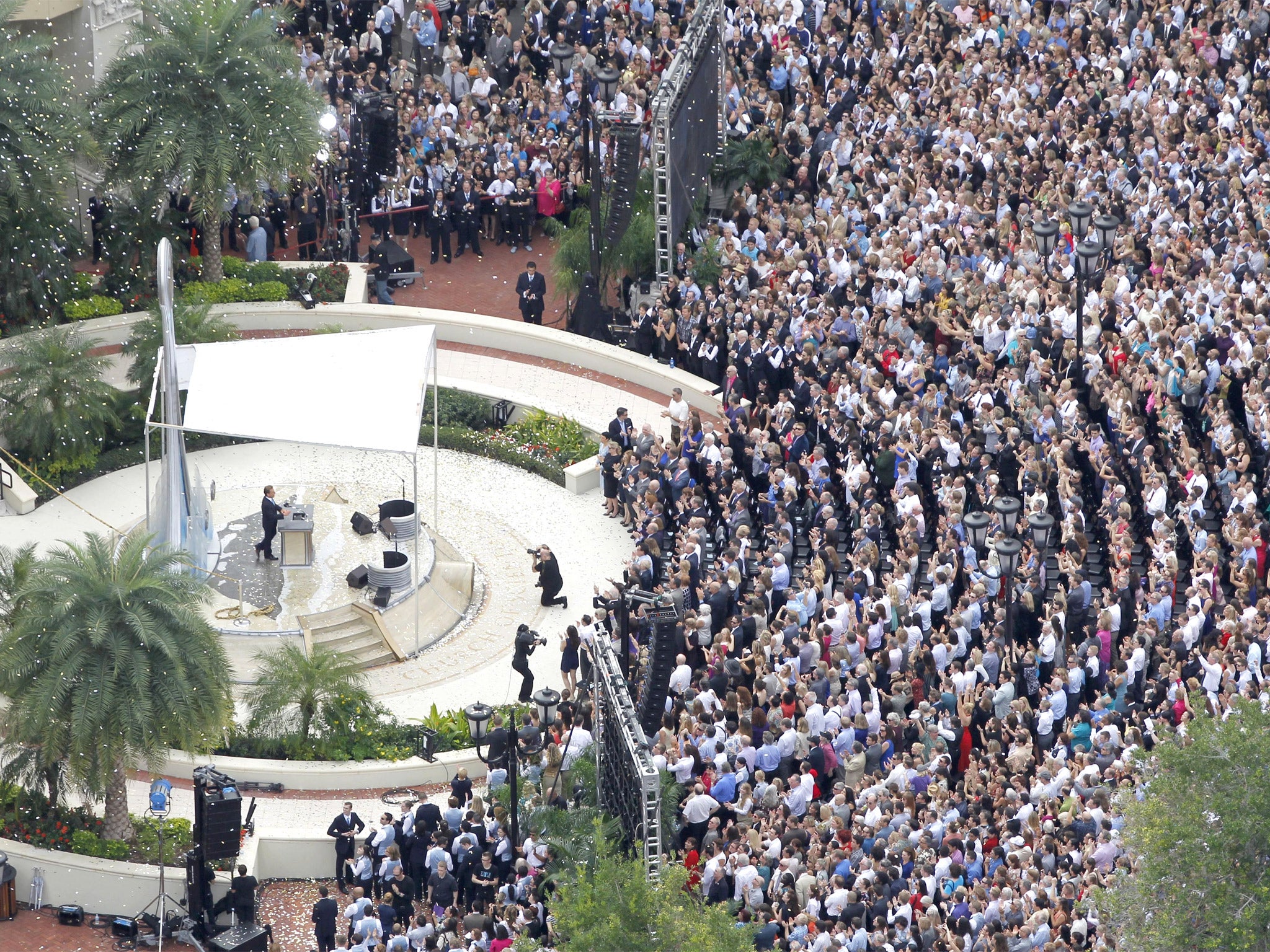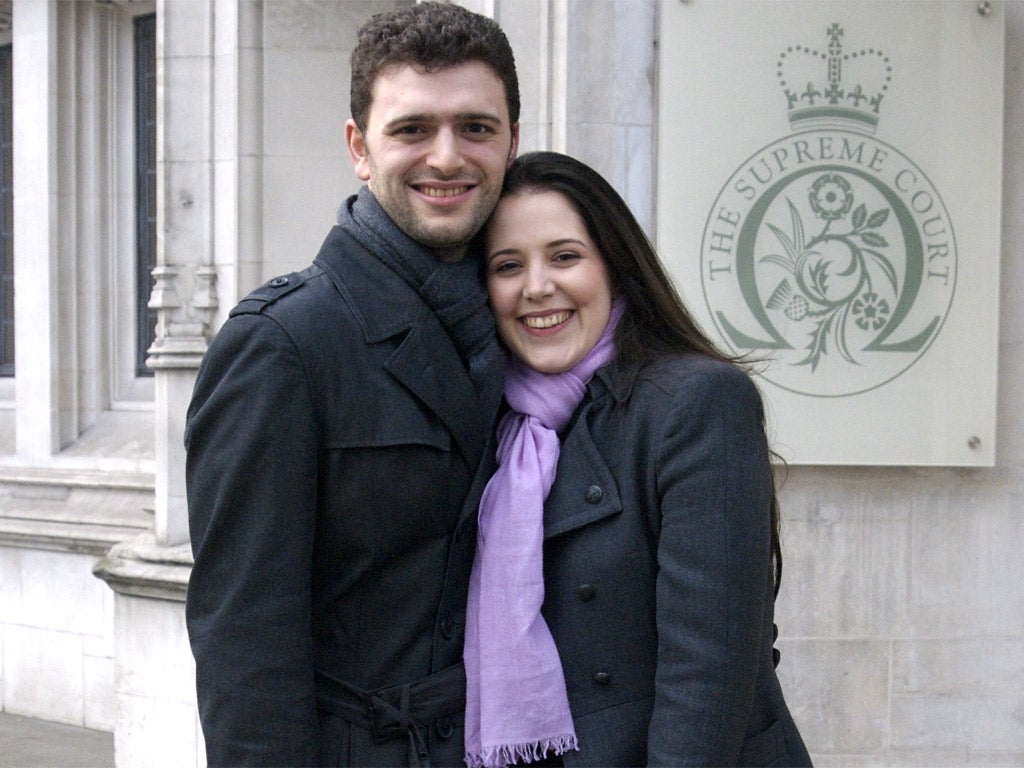Church versus state: Scientology faces unholy war after court ruling
The Supreme Court judgment has profound consequences, meaning it could gain charitable status – and opens the floodgates to claims by other organisations

For years the Church of Scientology has waged a global campaign for acceptance as a genuine faith, keenly using the help of celebrity backing from the likes of Hollywood stars Tom Cruise and John Travolta. Its cause has now been rewarded in Britain by a landmark legal victory, with the Supreme Court ruling that the movement – dismissed by some as a money-making cult – should in fact be treated as a bona fide religion.
The ramifications could be huge. Amid suggestions that Scientology might now qualify for charitable status, the Government responded by saying it would seek legal advice. Being recognised as a religion could save the church thousands of pounds in taxes; the business rate bill for its UK headquarters in East Grinstead, Sussex, is more than £107,000.
A government source warned that the decision “could be opening the floodgates” to a host of other groups also claiming to be religions and hoping for their own relief in business rates.
The Supreme Court case centred on whether two believers could get married in a Scientology chapel in central London. Louisa Hodkin, a Scientology volunteer, sued after the Registrar General refused to approve the chapel for the solemnisation of marriages because it was not a place for “religious worship”.
The judgment said it would be “illogical, discriminatory and unjust” to prevent Ms Hodkin and her fiancé Alessandro Calcioli, both 25 and from East Grinstead, from marrying in accordance with their beliefs. The court also held that “Scientology comes within the meaning of a religion” despite the lack of a belief in a supreme being.
Despite once being described in Parliament as an “evil cult” by the Education Secretary Michael Gove, it could now even attempt to set up its own state-funded schools.
Founded in the US in the 1950s by the late science-fiction writer L Ron Hubbard, the Church of Scientology has been dogged for years by accusations that it is simply a money-making venture, exerts an undue level of control on adherents and has harassed those who have spoken out against it, including former members.
However, it already is exempt from tax in the US and is classed as a religion for legal purposes in countries including Italy, Sweden and Spain.
In the UK, the Charity Commission said in 1999 that “Scientology is not a religion for the purposes of English charity law”, when it refused an application for charitable status. A spokeswoman for the Charity Commission said that it would now “have to consider the impact from this [the court’s ruling] on us” if the church reapplied.

The Local Government minister Brandon Lewis confirmed that the Government would take legal advice about the decision, saying he was “very concerned about this ruling, and its implications for business rates”.
“Hard-pressed taxpayers will wonder why Scientology premises should now be given tax cuts when local firms have to pay their fair share,” he said. “We will review the Court’s verdict and discuss this with our legal advisers before deciding the next steps.”
Secular campaigners said the case showed the strength of their argument that the state should not support or discriminate against any kind of religion. Terry Sanderson, president of the National Secular Society, said Scientology had a “terrible reputation and rightly so and yet here we are making it official”.
“It’s just not a church in the sense that you usually regard a church as being – at least in intent – benign and caring,” he said. “It’s just sort of there to make money … through exploitation and threatening people and all kinds of nefarious practices they get up to.”
The Church of England declined to comment on the case, but it has come into conflict with Scientology before. In 2004, a spokesman for the Anglican Diocese of Birmingham said the movement was “as much a religion as a dog is a vegetable”, while criticising a council decision to allow Scientologists to use the city’s Centenary Square.
Amid the turmoil about the implications of the ruling, the Scientologist couple were celebrating. Ms Hodkin said they hoped to get married in the next few months but had yet to set a date.
“I am really excited. I’m really glad we are finally being treated equally and can now get married in our church,” she said. “My fiancé and I have always believed in the fairness of the British legal process.”
Mr Calcioli, a graphic designer, added: “I think the court’s definition of religion is excellent. I think it’s what most people today would understand ‘religion’ to be.”
The Church of Scientology remained silent on the wider implications. “The Church’s position is that today is about Louisa and Ale being able to marry as they have sought for the past five years and the only plans are those in place for their wedding,” it said, in a statement.
Join our commenting forum
Join thought-provoking conversations, follow other Independent readers and see their replies
Comments
Bookmark popover
Removed from bookmarks